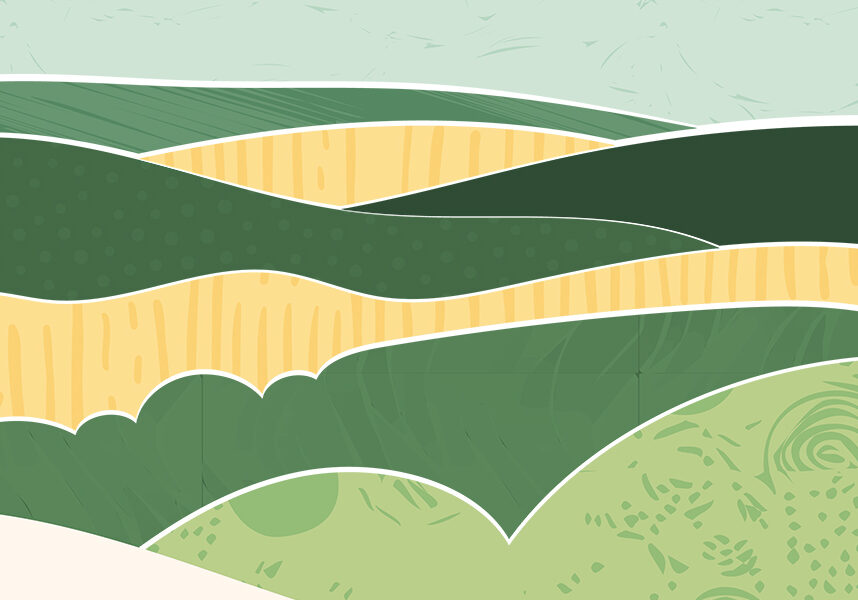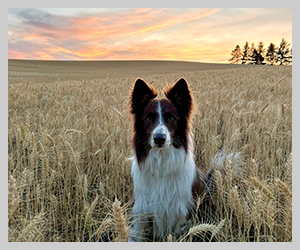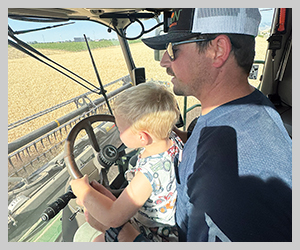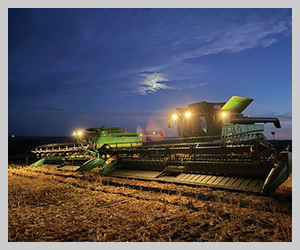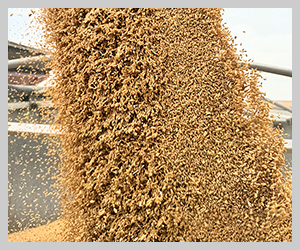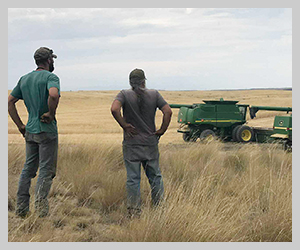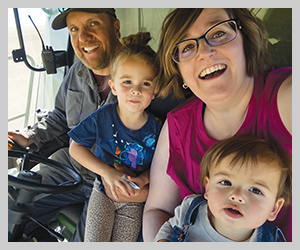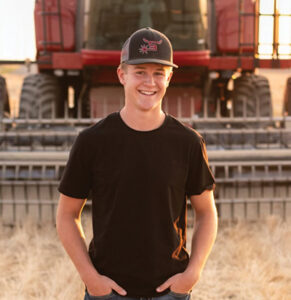
Before the Olympia Days trip, I wasn’t quite sure what to expect. I knew we would be meeting with legislators, talking about issues that matter to our communities, and learning more about how the state government works. Not only did I learn more about how the government works, but the experience provided an unexpected learning moment about myself and my connection to the issues we discussed. I was honored to be able to attend the trip as a wheat ambassador for the Washington wheat industry.
During one meeting with Sen. Mike Chapman (D-Port Angeles), the conversation turned toward the topic of dam removal. I had been thinking about this issue for a long time, especially since all the threats recently to remove them. Many people don’t realize that dams are not just concrete structures, but they represent irrigation, energy, history, and transportation for many ag commodities. So when Chapman said, “The dams won’t be taken out in this generation, or even yours,” it was a very reassuring thing to hear because growing up in a rural area, I’ve always understood how closely tied we are to the land. We don’t just drive past fields — we work them. I’ve helped with planting, harvesting, and caring for animals, and I’ve seen how much effort and care goes into keeping a farm running. Prices for supplies keep going up, and unpredictable weather makes everything more stressful. If irrigation became unreliable because of dam removal, it would push a lot of farms past the breaking point.
Furthermore, one thing that was meaningful and surprising was seeing how the legislators were willing to listen to our entire group as we brought up the issues that mattered most to us. It didn’t feel like we were just checking a box or being rushed through a meeting. Instead, the legislators gave us their full attention and really listened to what each person had to say. Whether someone was talking about the impact of dam removal on farming, concerns about affordable housing, or access to clean water in rural communities, the legislators or staff in the room were taking notes, asking thoughtful questions, and showing respect for our perspectives. It was clear they weren’t just hearing us — they were trying to understand. That made a huge impression on me.
I also learned something unexpected about how the Legislature works. From the outside, the government can seem slow and full of rules and procedures that don’t always make sense. But during our meetings, I realized that the people in these positions — senators, representatives, staffers — are just that: people. They have personal stories, local connections, and, most of all, they care. I had this idea that politicians were distant or unapproachable, but I learned that many of them truly want to hear from students and community members. They may not always agree with us, but they respect our experiences and what we bring to the table.
I realized in a different meeting how disconnected some decision-makers can be from rural life. I don’t mean that in a bad way, just that a lot of people making policies live in urban areas and may not fully understand how much we depend on these systems. It reminded me how important it is for organizations like the Washington Association of Wheat Growers to bring those personal experiences into the room. Legislators can read data all day long, but when someone looks them in the eye and tells them what it’s like to run a family farm, it makes the issue real.
What I’ll take with me from Olympia Days is the many new things I learned. I’ve realized that leadership doesn’t mean having all the answers — it means being willing to speak up, listen carefully, and stand by what you believe in, even when it’s not easy. It means connecting with people, sharing stories, and finding common ground, even in the face of disagreement.
In the future, I plan to take what I learned from this experience and apply it to my own aspirations. Whether I end up working on the farm, in policy, or in another field, I now know that making one’s voice heard matters. The moments with the legislators reminded me that the struggles I face as part of a farming family are not just personal, they are part of a larger, collective experience that deserves to be heard. Moving forward, I will continue to advocate for the things that matter to me and other farmers, and I will use the skills and confidence I gained during Olympia Days to make a positive impact on issues.
Ultimately, it was a privilege to be a part of the trip as a wheat ambassador. The trip taught me not just about the legislative process, but about the importance of speaking up and sharing our stories, no matter how personal or difficult they may be.





